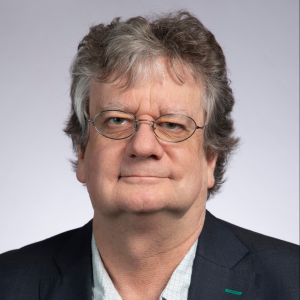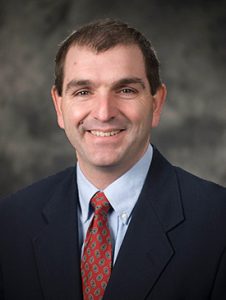Water

Sep. 17, 2021
Michael Sunde
Sunde’s research focuses on using quantitative modeling, geospatial and remote sensing approaches to evaluate the impacts of stressors such as urbanization, deforestation and climatic pressures on the environment and to map ecosystems at large scales, with an emphasis on watershed hydrology. His work uses an array of geographic, climatic and remotely sensed data, along with machine learning and physically based models to produce information that can be of utility to planners and decision makers. Educational background Ph.D. Natural Resources, University of Missouri…

June 5, 2020
Morgan P. Davis
Davis’ research is centered around soil biogeochemistry in the context of ecological sustainability. The objective of his research is investigating nutrient and energy cycles in both managed and natural ecosystems. This work provides insights for improving sustainability and contributes to foundational biogeochemistry knowledge. He is particularly interested in nitrogen and carbon transformations in forested and agronomic ecosystems. Specific research interests include the following: soil greenhouse gas emissions, soil health, soil organic matter, cover crops, tillage management, nitrate leaching, microbial communities, denitrification, indirect nitrous oxide emissions, and riparian buffers. Educational background Ph.D., Iowa State University, 2018 M.S., University of Illinois Urbana-Champaign,…

Sep. 27, 2018
Robin M. Rotman
Educational background J.D. Law, Yale Law School, 2009 M.S. Water Science, Policy, and Management, Oxford University, 2005 B.S. Geology, Sewanee: The University of the South, 2004…

Jan. 10, 2018
Robert Sharp
Sharp is a Chancellor’s Professor and Curators’ Distinguished Professor Emeritus of Plant Sciences at the University of Missouri (MU). He received his BS and Ph.D. (with Bill Davies) degrees from Lancaster University in the UK, and after postdoctoral work at the University of Illinois-Urbana (with John Boyer) and the University of California-Davis (with Ted Hsiao and Wendy Silk), joined the faculty at MU in 1986. His research career has emphasized the physiology of plant adaptation to water deficits (drought), with a primary focus on mechanisms of root growth regulation in maize (corn). In May 2021 he served as Chair of…

Jan. 10, 2018
Kelly Nelson
Educational background Ph.D. Crop and Soil Sciences, Michigan State University…

Dec. 15, 2017
Jeffrey Wood
Wood’s research focuses on ecosystem science and the exchanges of gases and heat between the biosphere and atmosphere. There is specific emphasis on better understanding the factors controlling fluxes of carbon, water, and nitrogen between natural or managed systems and the atmosphere. Educational background Ph.D., University of Guelph MASc, Dalhousie University BSc, Mount Allison University Courses taught ATM_SC 4400/7400: Microclimatology ATM_SC 4520/7520: Environmental Biophysics FOREST 2340: Tree Physiology FOREST 8620: Plant Water Relations…

Dec. 15, 2017
Joanna (Jodi) Whittier
Whittier focuses on applied research typically at landscape scales to assess habitat condition and the association between condition and community composition. She works collaboratively with stakeholders from across the U.S. to identify conservation opportunities based on current and future conditions. Educational background Ph.D., Wildlife and Fisheries Ecology, Oklahoma State University…

Dec. 15, 2017
Michael C. Stambaugh
Prior to becoming a scientist, Stambaugh worked as a forester for private industry and the federal government. Since 2010, his forestry research has received over $8 million in grant funding. He collaborates with the U.S. Forest Service, U.S. Fish & Wildlife Service, National Park Service, The Nature Conservancy, and multiple state natural resources organizations. He has been a National Geographic Explorer since 2010 and in 2023 was a Charles Bullard Fellow in Forest Research at Harvard Forest. Educational background Ph.D., University of Missouri Courses taught Forest Ecology Forest Health Advanced Forest Ecology…

Dec. 15, 2017
Craig P. Paukert
Paukert is the Leader of the US Geological Survey, Missouri Cooperative Fish and Wildlife Research Unit in the School of Natural Resources. His research is in collaboration with state and federal agencies to help them with their research needs related to climate change adaptation strategies for fish and fisheries, conservation and management of large river fishes, and stream fish conservation at the local and landscape scale. Paukert has a Ph.D. from South Dakota State University, an M.S. from Oklahoma State University, and a B.S. From the University of Minnesota. Prior to arriving at MU in 2010, he worked with USGS…

Dec. 15, 2017
Rebecca North
Research in the North group is focused on addressing the question: What controls algal biomass of inland waters? North’s team focuses on the effects of multiple stressors on nutrient cycling, bioavailability, and primary production in Missouri water bodies with particular attention to the source and timing of nutrient loading and the response of the receiving water body. Ecosystem stressors include, but are not limited to: climate change, landscape modification (i.e., agricultural, urban, and industrial applications), eutrophication, and invasive species (i.e., zebra mussels). North’s research is conceptually driven and applies field, lab, and quantitative approaches to studying issues in watershed and…
- « Previous
- 1
- 2
- 3
- Next »